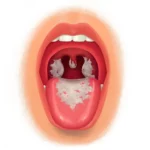Gavi Joins Forces with Federal Government in Response to Diphtheria Outbreak

International organization, Gavi, the Global Vaccine Alliance, commits to collaborating with the Federal Government of Nigeria to combat the ongoing diphtheria outbreak.
In a significant move to address the diphtheria outbreak currently affecting Nigeria, Gavi, the Global Vaccine Alliance, has pledged its full support and partnership with the Federal Government. This commitment was announced on Wednesday, highlighting the critical importance of coordinated efforts in managing and containing the outbreak.
Commendation for Coordinating Minister’s Proactive Measures
Gavi also commended the proactive steps taken by the Coordinating Minister of Health & Social Welfare, Ali Pate, who swiftly established an emergency task force to tackle the ongoing crisis. Recognizing the pivotal role played by the task force, Gavi expressed its unwavering commitment to actively participate as a member of this crucial team.
Swift and Coordinated Action Needed
Tokunbo Oshin, the Director of High Impact Countries at Gavi, emphasized the urgency of the situation, stressing the need for swift and coordinated action from all partners in support of the government’s comprehensive response. Gavi has already taken a significant step by providing 11.7 million doses of the highly effective pentavalent vaccine, which safeguards children from five life-threatening diseases, including diphtheria, pertussis, tetanus, hepatitis B, and Hib.
“We remain committed to working closely with the Nigerian government in partnership with all technical and resource partners to support its comprehensive response,” stated Oshin.
Disease Statistics and Risk Factors
As of October 3, Nigeria has reported a total of 13,204 suspected cases of diphtheria. Out of these, 8,406 cases have been confirmed in 114 Local Government Areas across 18 states and the Federal Capital Territory.
Diphtheria, a severe bacterial infection caused by Corynebacterium species, primarily affects the nose, throat, and, at times, the skin. According to the Nigeria Centre for Disease Control (NCDC), individuals at the highest risk of contracting diphtheria include children and adults who have not received any or only a single dose of the pentavalent vaccine. Moreover, those living in overcrowded environments, areas with poor sanitation, and healthcare workers exposed to suspected or confirmed diphtheria cases are also vulnerable.
Modes of Transmission and Symptoms
NCDC also outlined the modes of transmission, explaining that the disease can easily spread among individuals through direct contact with infected persons, droplets from coughing or sneezing, and contact with contaminated clothing and objects.
Common symptoms of diphtheria include fever, runny nose, sore throat, cough, red eyes (conjunctivitis), and neck swelling. In severe cases, a thick gray or white patch may appear on the tonsils or the back of the throat, which can lead to difficulty breathing.
This collaborative effort between Gavi and the Federal Government is a significant stride in curbing the diphtheria outbreak, emphasizing the importance of prompt, coordinated action and vaccination efforts to protect the health and well-being of the Nigerian population.



